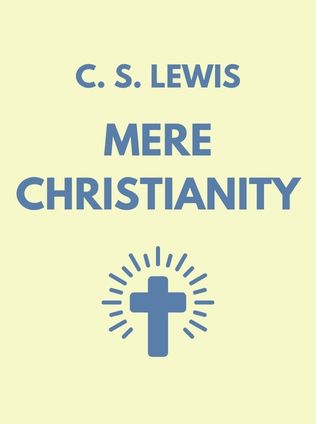
Mere Christianity
By C. S. Lewis
Published 01/1942
About the Author
C.S. Lewis, born in 1898 in Belfast, Northern Ireland, was a scholar, novelist, and Christian apologist whose works have left a lasting impact on literature and religious thought. Lewis's journey from atheism to Christianity was pivotal in his life and profoundly influenced his writings. He was a fellow at both Oxford and Cambridge, specializing in English literature. His conversion to Christianity in his early 30s was not a momentary revelation but a gradual process that deeply shaped his worldview.
Lewis is perhaps best known for his "Chronicles of Narnia" series, but his contributions to Christian apologetics, particularly through works like "The Screwtape Letters" and "Mere Christianity," have cemented his reputation as a key figure in 20th-century Christian thought. His ability to articulate complex theological concepts in a clear and accessible manner has endeared him to both scholars and laypeople alike.
Main Idea
"Mere Christianity" is a compilation of a series of radio talks Lewis delivered during World War II, aimed at explaining and defending the Christian faith to a general audience. The book is divided into four main parts, each addressing different aspects of Christian belief. At its core, "Mere Christianity" seeks to present the essence of Christian faith, stripped of denominational differences, and to argue for the reasonableness of Christianity in a way that resonates with both believers and skeptics.
The central thesis of the book is that Christianity provides a coherent and compelling explanation for the human condition, moral law, and the existence of God. Lewis argues that the moral law, which all humans inherently recognize, points to the existence of a moral lawgiver—God. He further explores the nature of Christian belief, the concept of Christian behavior, and the process of becoming a Christian, emphasizing that Christianity is not just about adhering to a set of rules but about transforming one's entire being.
Table of Contents
- The Law of Human Nature
- What Christians Believe
- Christian Behavior
- Beyond Personality: Or First Steps in the Doctrine of the Trinity
The Law of Human Nature
Lewis begins by discussing the concept of the Law of Human Nature, or the Moral Law, which he describes as a universal sense of right and wrong that transcends cultures and time periods. He argues that this moral code is evidence of a higher power, as it cannot be explained by natural or societal forces alone.
Sign up for FREE and get access to 1,400+ books summaries.
You May Also Like
The Subtle Art of Not Giving a F*ck
A Counterintuitive Approach to Living a Good Life
By Mark MansonRich Dad Poor Dad
What the Rich Teach Their Kids About Money - That the Poor and Middle Class Do Not!
By Robert T. KiyosakiHow To Win Friends and Influence People
The All-Time Classic Manual Of People Skills
By Dale Carnegie



















